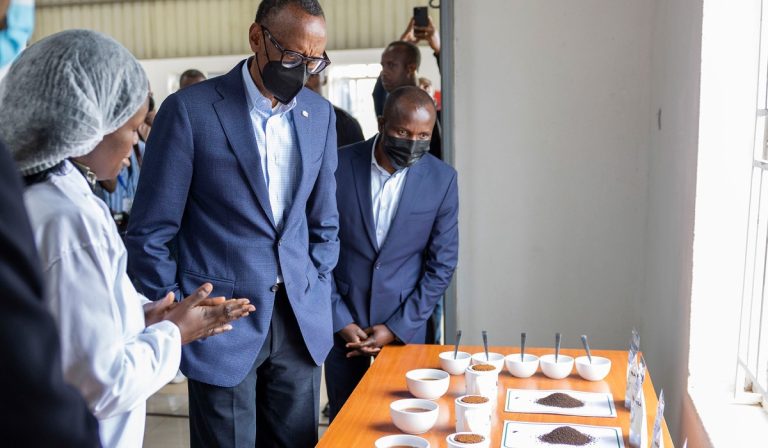
On August 28, 2022, President Paul Kagame paid a visit to Rugabano Tea Factory as part of his four-day citizen outreach tour in the Southern and Western provinces.
He urged tea growers to increase production and capitalize on the huge demand for their product on the global market. “Rwanda’s tea is superior to other teas in terms of quality. Not only in the region, but also globally, it is among the best. We should use the chance to benefit more Rwandans even better. This is an opportunity to seize, and we have everything it takes to maintain the tea’s high quality.”
Rudra Chatterjee, the chairman of Rugabano Tea Factory, stated in his address that the company he represents has invested $12 million and has committed to investing up to $40 million.
The Rugabano tea factory started its operations in 2019 as a result of a signed agreement between the Rwandan government and Luxmi Tea Company to develop tea greenfield in Karongi district, Rugabano sector, Gisiza cell, and in collaboration with ROS (Rugabano Out-growers Scheme), a service provider, to expand the area under production. ROS currently has 3,094 farmers, with 992 ha of tea estate.
The government was able to fulfill its obligations of expropriation and ensuring the well-being of affected families by relocating 364 families to an Integrated Model Village. These families were supported with cattle, piggery and poultry programs to improve their standard of living.
Tea was introduced in Rwanda in the 1950’s. The cash crop’s production has increased progressively, from 5,910 tons in 1980 to 12,855 tons in 1990, and to 36,000 tons in 2021. By June 2021, 26,309 Ha were under tea production. From this acreage the country earned $103 million from exported tea.
Rwanda primarily produces black tea, white tea, green tea, orthodox tea and organic tea respectively, with spicy tea produced on demand by specialized niche markets.
Gisovu, Karongi, and Rugabano are the three tea processing factories in the Karongi district. They account for 10.2% of total tea production in the country. (End)
